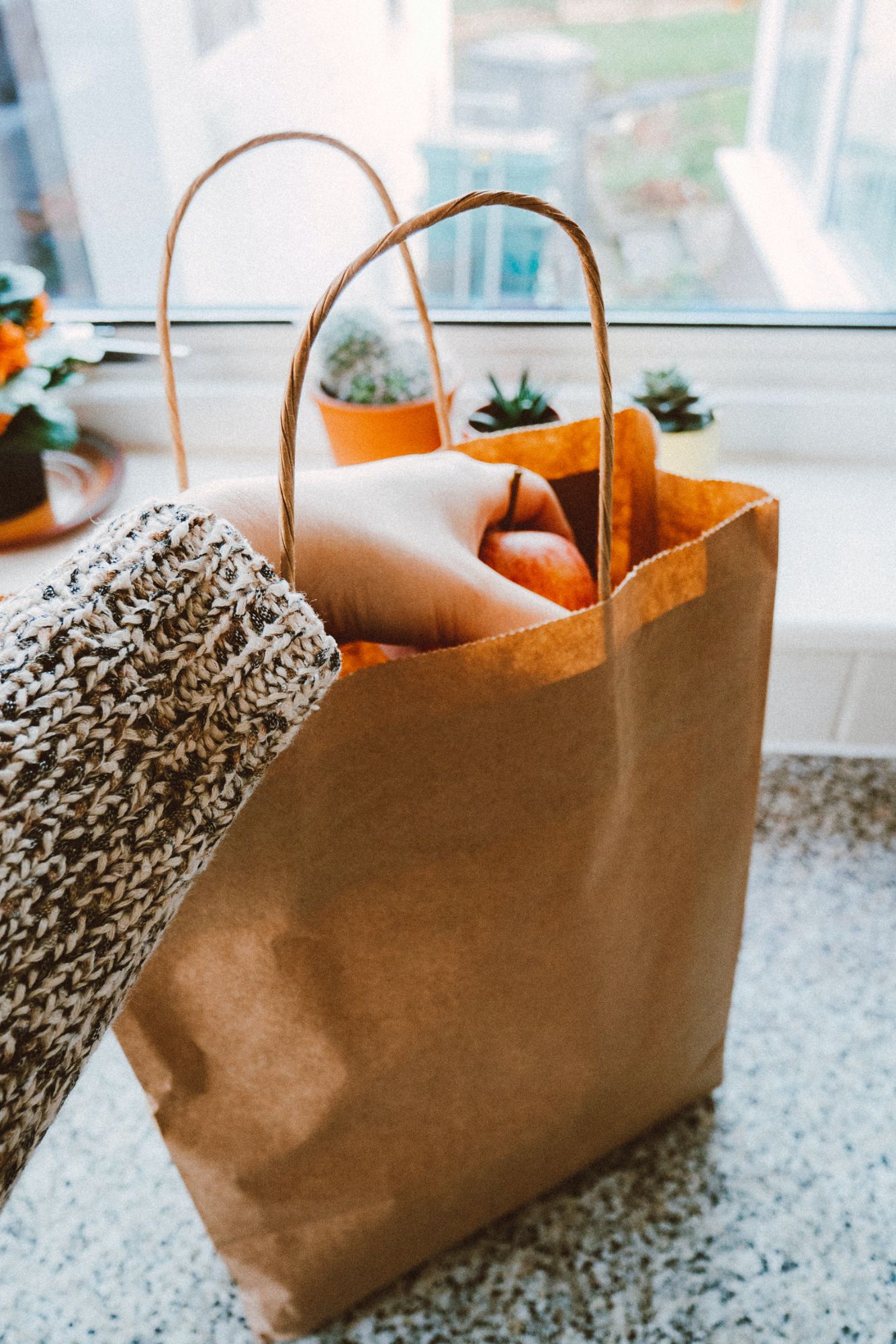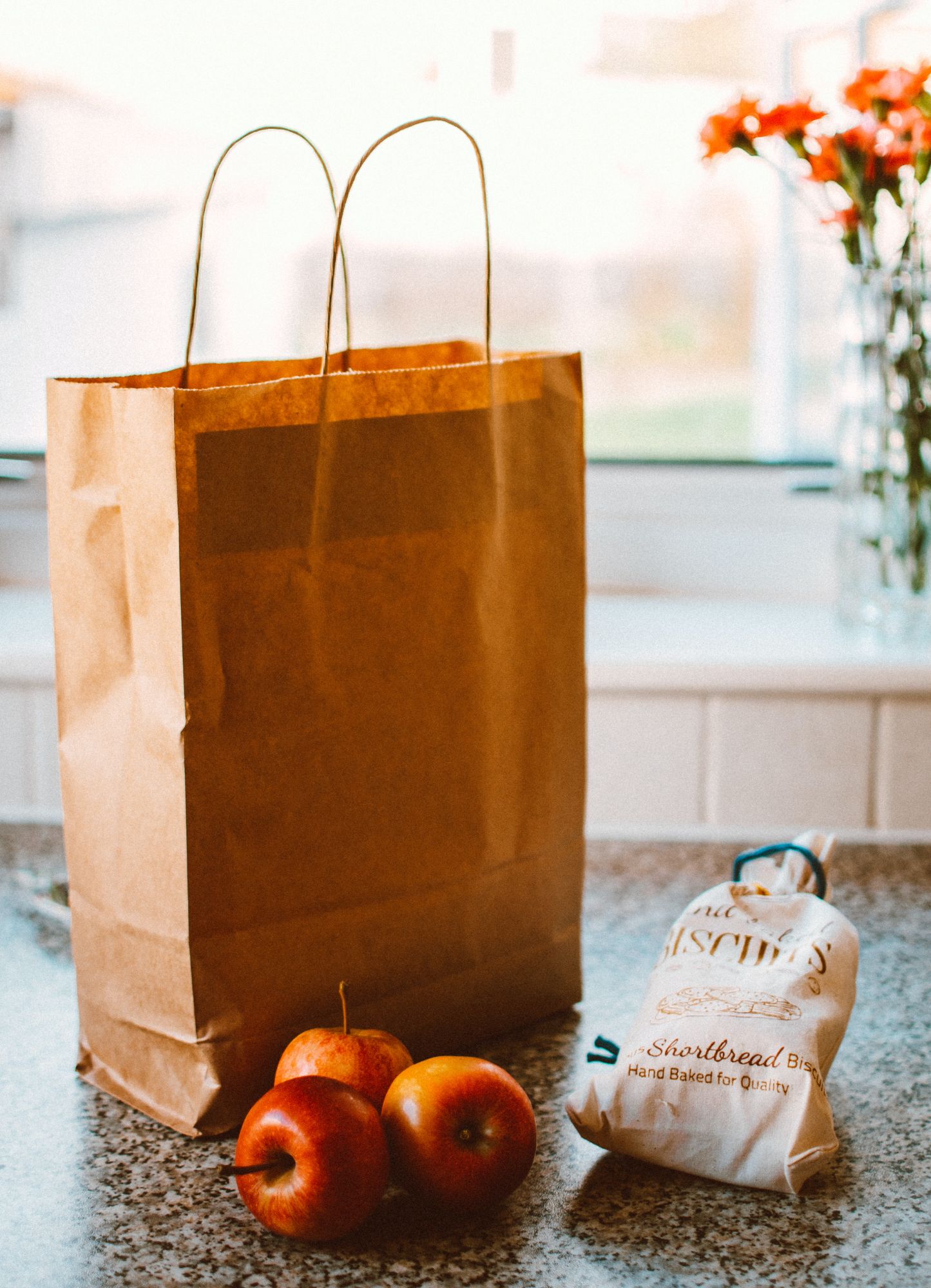How I Saved 50% On MY Food Bills
Over the last year, in a bid to save as much money as possible, I have overhauled my shopping habits. By being consistent with a few simple changes I have managed to cut my food bill by around 50% - and this is without making huge compromises, I still buy organic where I can, but simple changes really can add up.
Now before we jump in, I just want to warn you that you may not read any groundbreaking tips here. Some of the tips I'm about to share with you I had heard before myself, I just hadn't implemented them, so if nothing else I hope by sharing my experience you might be spurred on to give some of them a try yourself and see if they work for you too.
CONSIDER SWITCHING SUPERMARKETS
I switched from mainly shopping at Tesco to shopping at Lidl about a year ago now and there are definitely savings that can be made by using a more 'budget' supermarket. Now admitedly the savings are not huge, especially as even the bigger supermarkets are trying to compete, but those small savings can add up over time.
For example, a bag of organic carrots at Lidl is 89p vs £1 at Tesco, 6 organic apples are £1.99 at Lidl vs £2.25 at Tesco, so we aren't talking huge savings per item, but these are things I buy most weeks, so over the course of a year saving just a small amount on every product could potentially add up to hundreds of pounds.
COOK FROM SCRATCH
One of the few upsides of the last year is that I've found additional time to cook from scratch. I've always enjoyed cooking but always told myself I was too busy (which was utter nonsense in hindsight) but by cutting out the processed pre-prepared meals I've really noticed the savings. Before I used to look at a pre-prepared meal at £4.50 and think that's ok for an evening meal, but now, by cooking from scratch I can cook meals that are sometimes much better quality, more nutritious and often taste so much better and they can cost as little as £1.20 per meal. Another upside of this is I genuinely believe that by reducing a lot of the processed food in my diet, this has contibuted to my recent 40lb weight loss.
BATCH COOKING
I think this is a tip many of us have heard or read before. I know I had, but I always felt like it wasn't for me because I don't have children etc - how wrong I was because since I've started cooking from scratch, it's so easy to just double up a recipe or make additional portions and then freeze those for another day. Not only does this mean you are only cooking once, but also when you have things pre-prepared by yourself, on lazy days when you just cannot be bothered to cook, you resist buying a ready meal or ordering junk, because it will only take a short time and you will have something tasty and homemade to eat.

HAVE GO TO MEALS
Leading nicely on from batch cooking is to learn how to cook a few go to meals that you always enjoy. It sounds boring to eat similar things regularly but if you enjoy them, it's not at all and it can really help you plan what to buy so that you aren't letting anything go to waste. For me my go to meals are things like casseroles, curries, cottage pies, bolognese - all things that can be made in batches, frozen and I will always enjoy them.
INCREASE THE VEG
Without getting into any ethical arguments around what people should or shouldn't eat, I am currently not vegan or vegetarian but I started reducing how much meat I ate and increasing the veg I ate a few years ago. Since cooking from scratch I've done this even more and it's definitely a money saver, it also allows me to buy the highest possible welfare if I do buy meat, but I actually prefer some of my meat free meals, I think they can be tastier!
Things like veggie curries can be just as tasty as the meat versions, veggie soups are super easy to make and very cheap per portion. Bulking pretty much any recipe out with veg also works to increase the amount of portions at the same time as driving down the cost per potion down.
If you aren't quite ready to go meat free with some of your meals, consider adapting the recipe. Use half as much chicken in your curry as you would usually and add more veg. If making something like bolognese and the recipe calls for 500g of mince, try using 250g of mince and add a can of green lentils. You can do the same with things like cottage pie. It tastes just as lovely, you're still getting protein if that's a concern, but the can of lentils costs probably in the region of 60p, so much chepaer than good quality, high welfare mince. You can also find great meat free versions of classic meals, things like veggie shepherds pie, veggie ragus etc. They are genuinely really tasty and much cheaper to produce.
CONSIDER SHOPPING ONLY ONCE A WEEK
Pre pandemic I used to be one of those people who popped into the supermarket pretty much daily, but over the last year, in part to reduce social contact, I've been shopping just once a week, sometimes once a fortnight and I think this has really helped to save money as first of all I'm using up what I have and making sure I don't waste anything, but I'm also not seduced by offers or things like ready meals after a busy day, so I'm not buying things I don't need.
It does mean you have to think a little more about what you might need to buy, perhaps planning meals for the week, but once you've learnt to cook several meals from scratch this is easier than it might initially seem.
You can also usually look online at what offers are on on produce before you shop so you can utilise that to help you plan around that to potentially save even more.

CONSIDER EATING SEASONALLY
I have other reasons for liking to do this, like supporting Britsh and local farmers, reducing carbon footprint and so on, but I do think buying seasonal produce often works out cheaper. It's really easy to find out what's in season online and then look out for it in store. One side benefit I've found of this is that because they are not being flown across the world, things like root veg, cauliflower, squash when in season in the UK is less likely to be packaged in plastic. There may even be health benefits as some scientists belive easting seasonally benefits your microbiome.
IF YOU BUY IT, USE IT
I've always hated food waste. I think it's so bad when there is such food insecurity in parts of the world, here in the UK millions of tons of food ends up in landfill, and yet some families are struggling to eat - but even I have to admit, before I changed the way I shopped and ate, I could be guilty of a little bit of waste from time to time. This was usually because I'd say to myself 'well I know that needs using up, but I don't fancy that'. These days I don't allow myself such a priviledge. I've found that even when I 'don't fancy something', if it's home cooked and nutritious, by the time it's ready to eat I do want it and enjoy it. Plus when cooking from scratch it's really easy to not waste items, because if I'm cooking a curry for example, I'll chuck pretty much any veg into it that needs using up and it tastes great. I'll also make sure to use everything I can, leftover chicken from a roast, combined with very simple veg, stock made from the carcass, makes a very tasty casserole.
Alternatively if I'm worried something might go off before I have chance to use it, I'll prep and freeze it. Although freezing veg might mean you need to use them differently, if you are going to use them in a casserole or a coup or going to mash them anyway, it really doesn't matter. Fruit can also be frozen and popped in a smoothie so it's not wasted too, so there's lots of ways to save money by simply reducing waste.
Reports suggest the average family throws away £400-700 worth of food per year that could still have been edible. That is crazy to me, that is not a small amount of money to the average person either and could be utilised in much better ways.
DON'T SHOP WHEN YOU ARE HUNGRY
Lastly, a tip I'm sure you've heard or read before, but it's trotted out a lot for a reason. When I'm hungry I am absolutely more likely to buy more than I need and also want to buy more processed foods, more snack foods because I'm looking for that quick fix. There are several studies taht show we are all much more likely to buy high calorie, adulterated foods when we shop when hungry, and these offer less value for money than buying produce and cooking from scratch.